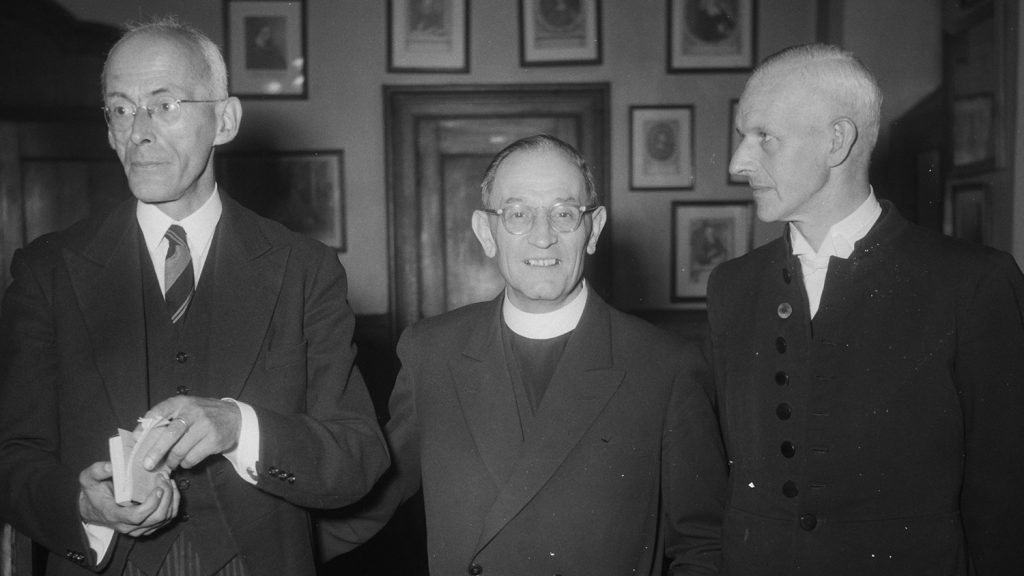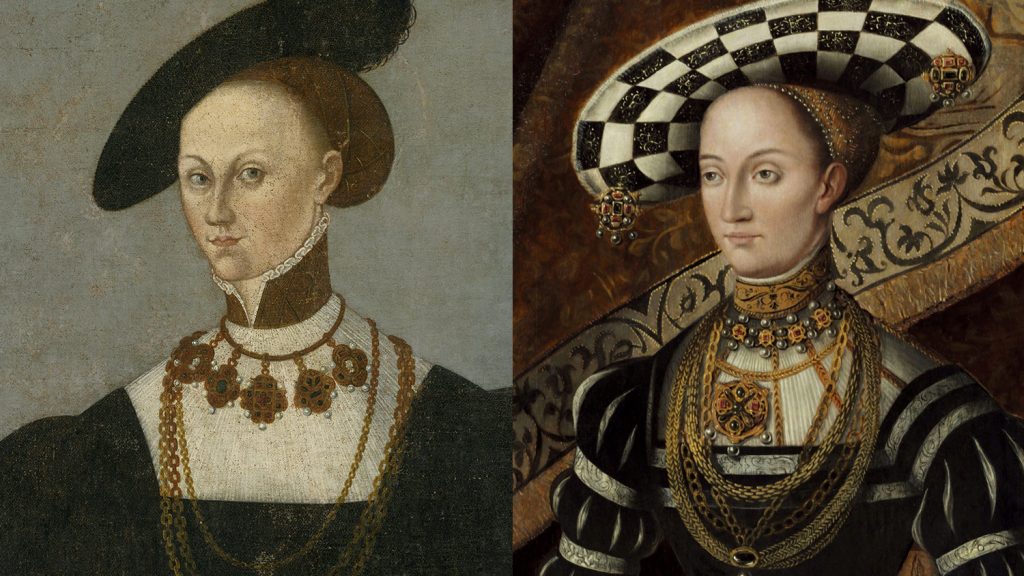Today in 1540 Philip of Hesse married Margarete von der Saale (left above), with the approval of Martin Luther, despite already being married to his wife Christine von Sachsen (right above). Philip’s selfless calculation was that of the three evils – keeping Margarete as his mistress, divorcing Christine to marry Margarete, or being married to them both, the latter was least worst. He was the most powerful of all the Protestant princes, and offered Luther the choice of condoning his bigamy or watching him take his land back to Catholicism. Well, what’s a man of God to do?

Pastor Martin Niemoeller (the man in the middle in the photo above), a leading light of Germany’s Confessing Church, and a U-boat commander in World War I, was sent to Sachsenhausen concentration camp for publicly resisting Nazi ideas on this day in 1938.
Priest and composer Antonio Vivaldi was born in Venice during an earthquake on this day in 1678. Because of the earthquake, Vivaldi was baptised immediately, and his mother may have promised God he would become a priest. Whatever happened, he started training for the priesthood when he was 15.
Main image: Staatliche Museen Kassel/Wikimedia and Museumslandschaft Hessen Kassel/Wikimedia Second image: National Archief/Wikimedia under CC0 1.0
